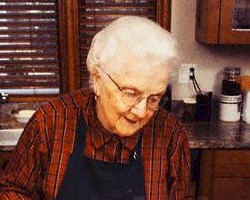|
|
Elderly Often Afraid to Report Abuse
Associated Press
May 30, 2005

The elderly are often afraid to report abuse out of fear of being placed in a nursing home, victims' advocates say.
Advocates say the elderly also may be afraid of their attackers or too proud to admit they can't defend themselves.
"It's amazing how those things have such an immense control over these victims," says John Judisch, a Polk County prosecutor who specializes in adult abuse and neglect cases. "It creates a huge barrier between them and help."
For Jasper Doroty, 79, of Des Moines, the abuse left him just plain angry.
Jasper said his granddaughter and her husband moved in with him and his wife, low on money and looking for a place to stay.
It wasn't long, Doroty said, before his grandson-in-law started stealing from them. It started with tools and a coin collection. Then it was a checkbook and money, he said.
"If me and the wife went somewhere, he'd ransack the place. He even cut the copper off the pipes of my furnace. Anything to get a nickel out of me," says Doroty, who pays the bills with his Social Security check.
Doroty said he couldn't get the couple to leave, saying the suggestion evoked intimidating confrontations.
"He'd back me into a corner and say he'd make minced meat out of me," Doroty says.
"One day, I just had enough."
Doroty mustered his resolve and called the Polk County attorney's office, which sought and received earlier this year a court order forcing his unwanted tenant to leave.
Judisch said cases such as Doroty's are unusual. Too often, authorities only learn of a problem after there has been violence.
Doroty's is just one example of abuse. There are others that involve extreme neglect.
In 2000, Blossom Deering, 68, of Des Moines, was left to lay in her own waste for weeks, too weak to move.
When her live-in caregiver, who prosecutors say neglected Deering, finally called for help, paramedics had to wear oxygen tanks and masks to breathe through the stench and pry Deering from the floor.
Deering died days later of septic shock.
Her caregiver, Richard Smith Jr., pleaded guilty of dependent adult abuse and neglect, and was sentenced to 15 years in prison.
The National Center on Elder Abuse says it's difficult to place numbers on the problem. It estimates that as many as 80 percent of cases are hidden.
Prosecutors hardly worried about such abuse a decade ago, but since the Deering case, Polk County has created a prevention task force.
A Polk County prosecutor started specializing in adult abuse cases and police detectives have received special training.
At any one time, Polk County prosecutors have about 20 active criminal cases with charges filed; another 20 to 25 are under investigation.
In all, prosecutors will act on about 200 cases this year, said Polk County Attorney John Sarcone.
"And we've only hit the tip of the iceberg," he said.
Adult abuse isn't just about seniors. Disabled people who rely on a caregivers also suffer abuse and neglect.
Natalie Davidson, a quadriplegic born with cerebral palsy, uses a wheelchair and can't feed, bathe or dress herself.
When Davidson, of Johnston, started college two years ago at Drake University, her parents hired a woman to live with her in her dormitory. The arrangement fell apart before the first semester was over.
The caregiver ignored her for days at a time, failed to bathe Davidson for a whole week, didn't feed or help her to the bathroom for entire days.
Davidson, now 21, said she didn't complain at first because it's difficult to find someone to take the job.
"It's like you take what you can get, and try to be happy with it," she said. "I'm at their mercy."
Friends and teachers eventually told Davidson's parents and Davidson herself started to complain.
"If you don't have someone who has your best interest at heart, then you don't have anything, really," Davidson said.
The caregiver, Kathryn Tolefree, pleaded guilty of wanton neglect of a dependent adult last year.
Davidson and her parents say there is no shame in seeking out help, that there is nothing wrong in protecting your dignity.
"People simply have to step forward and say this can't happen," says Brian Davidson, Natalie's stepfather.
|
|



